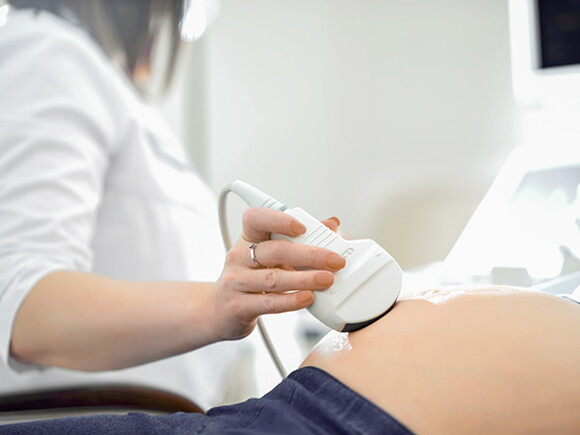This is particularly true when it comes to differentiating between early pregnancy symptoms and premenstrual signs. Both can share remarkably similar manifestations. Understanding the details and distinctions of each stage can help demystify these bodily processes, resulting in a more informed approach to one's health and well-being.
Deciphering the symptoms of early pregnancy
Deciphering early pregnancy symptoms involves taking note of a realm of bodily cues and subtle signs. Understanding the first whispers of potential motherhood, or dismissing them as the familiar prelude to menstruation, requires a delicate balance of observation and knowledge.
The lines between the symptoms of early pregnancy and premenstrual syndrome (PMS) are quite similar. It can be difficult to differentiate between the two. Recognizing these differences can provide clarity and insight, helping you to navigate this intricate crossroad of physical and emotional experiences.
What is premenstrual syndrome (PMS)?
Premenstrual Syndrome, also known as PMS, encompasses a variety of symptoms that many people experience in the one to two weeks before menstruation begins. The symptoms of PMS can be both physical and emotional, ranging from bloating, breast tenderness, and fatigue to mood swings and irritability.
The exact cause of PMS isn't fully understood, but it's believed to be related to fluctuations in hormone levels and serotonin during the menstrual cycle. Despite its prevalence, the intensity and specific symptoms of PMS can vary greatly from person to person.
What is the difference between PMS and signs of pregnancy?
Certain symptoms of PMS and early pregnancy can overlap. These symptoms include mood swings, breast tenderness, and fatigue. However, there are distinct differences that can help differentiate the two. For instance, nausea and vomiting, often referred to as morning sickness, are more typical of pregnancy than PMS. Similarly, a missed period is a strong indicator of pregnancy and seldom a characteristic of PMS. It's also worth noting that while PMS symptoms will recede with the onset of menstruation, pregnancy symptoms typically persist and evolve as the pregnancy progresses.
Is a late period a sign of pregnancy?
A late period is often seen as an early indicator of pregnancy, particularly for those who have regular menstrual cycles. Steeped in both anecdotal and medical lore as a preliminary whisper of new life, a late period can evoke a range of emotions, from exhilaration to apprehension. However, it's important to stay calm as the rhythm of our bodies can be disrupted by a myriad of external and internal influences.
Stress, for instance, can wield significant power over our hormonal balance and menstrual regularity. Similarly, substantial weight fluctuations and the introduction of certain medications can cast ripples across the serene waters of our cycle. Underlying health conditions, both benign and serious, can alter menstrual patterns.
Considering the many factors capable of influencing menstrual regularity, a late period—while potentially indicative of the dawn of pregnancy—must be approached with caution. It’s always useful to look for other symptoms that may accompany early pregnancy, such as nausea, heightened sensitivity to smells, or unexplained fatigue. Equally, it underlines the importance of using a pregnancy test to obtain a definitive answer.
A pregnancy test is just the first step on the journey. It opens the door to the wider realm of prenatal care involving various medical professionals. Only a comprehensive evaluation of overall health can determine if a late period heralds a new life or has been caused by other factors influencing one's health and well-being.
The pregnancy test: A reliable and practical method
A pregnancy test is a straightforward and reliable way of detecting pregnancy. Available over the counter, pregnancy tests work by detecting the presence of human chorionic gonadotropin (hCG), a hormone found in the body following the implantation fertilized egg in the uterus. For the most accurate result, it's recommended to take the test after a missed period and follow the instructions carefully. If uncertainty persists, consult a healthcare provider for further testing and guidance.
Navigating the complex terrain of early pregnancy symptoms and premenstrual signs requires a keen understanding of one's body and a great deal of patience. Recognizing the similarities and differences between PMS and pregnancy symptoms and using reliable methods of verification, such as pregnancy tests, can provide clarity and direction during uncertain times.










